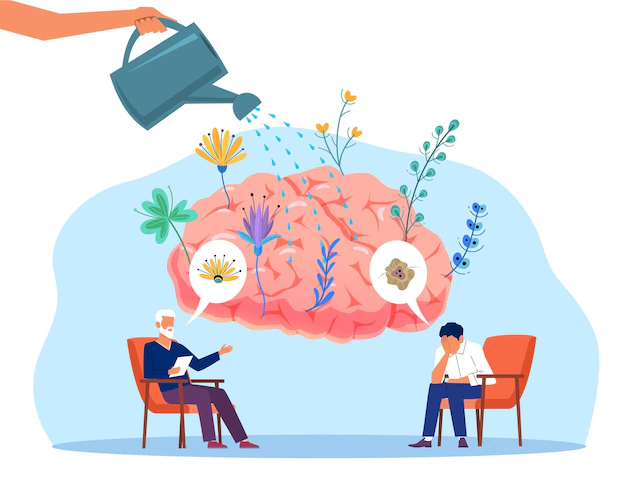Exploring Diverse Career Paths with a Psychology Degree
A degree in psychology opens doors to a multitude of career opportunities across various sectors. The versatile nature of psychology equips graduates with invaluable skills in understanding human behavior, cognition, and emotions, making them well-suited for diverse roles that require strong interpersonal, analytical, and problem-solving abilities. Here are 40 career paths individuals can pursue with a psychology degree.

Exploring Diverse Career Paths with a Psychology Degree
1. Clinical Psychologist: Diagnose and treat mental, emotional, and behavioral disorders through therapy and counseling.
2. Counseling Psychologist: Offer guidance and support to individuals dealing with personal or psychological issues.
3. School Psychologist: Work in educational settings to address students’ behavioral, emotional, and learning difficulties.
4. Forensic Psychologist: Apply psychological principles within the criminal justice system, assessing offenders’ mental states and behaviors.
5. Industrial-Organizational Psychologist: Apply psychological principles to workplace settings, focusing on employee behavior, motivation, and organizational development.
6. Human Resources Specialist: Utilize psychological understanding in hiring, training, and managing employees.
7. Behavioral Analyst: Study and assess behaviors, implementing interventions for behavioral change in various settings.
8. Neuropsychologist: Study the relationship between behavior and the brain, often working with individuals with brain injuries or neurological conditions.
9. Health Psychologist: Focus on the link between psychology and health, aiding in behavioral changes to improve overall wellness.
10. Sports Psychologist: Work with athletes to enhance performance, manage stress, and improve mental well-being.
11. Marriage and Family Therapist: Provide counseling to families and couples dealing with relationship issues.
12. Substance Abuse Counselor: Assist individuals dealing with addiction, providing support and therapy.
13. Rehabilitation Counselor: Help individuals with disabilities or injuries navigate personal and professional challenges.
14. Psychiatric Technician: Assist psychiatric patients with daily living tasks in clinical settings.
15. Geriatric Care Manager: Assist elderly individuals and their families in managing healthcare needs and daily life.
16. Child Development Specialist: Work in childcare settings, focusing on children’s cognitive, emotional, and social development.
17. Social Worker: Assist individuals and communities in coping with various challenges and crises.
18. Market Research Analyst: Analyze consumer behavior and market trends for businesses and organizations.
19. Advertising Copywriter: Use psychological insights to create persuasive advertising content.
20. User Experience (UX) Researcher: Analyze user behaviors to enhance product usability and satisfaction.
21. Academic Advisor: Provide guidance to students regarding academic and career choices.
22. Career Counselor: Assist individuals in exploring career options and making career-related decisions.
23. Community Relations Specialist: Work in community outreach programs, focusing on social issues and public relations.
24. Crisis Intervention Counselor: Provide immediate support and guidance during crises or emergencies.
25. Behavioral Health Technician: Assist psychologists and therapists in clinical settings, working with patients on behavior modification.
26. Case Manager: Coordinate services and resources for individuals requiring assistance, such as those with disabilities or in need of social services.
27. Child Welfare Specialist: Work to ensure the safety and well-being of children in various settings, including foster care and adoption agencies.
28. Mental Health Technician: Provide support and assistance to individuals with mental health conditions in clinical settings.
29. Public Relations Specialist: Apply psychological understanding in managing public image and communication strategies for organizations.
30. Victim Advocate: Provide support and advocacy for individuals who have experienced trauma or victimization.
31. Research Assistant: Assist in psychological research projects in academic or corporate settings.
32. Disability Policy Analyst: Analyze policies and advocate for individuals with disabilities in public policy settings.
33. Psychiatric Researcher: Conduct studies and experiments in psychiatric settings to further psychological knowledge.
34. Health Educator: Develop and implement programs to educate communities on health-related issues and behaviors.
35. Human Services Administrator: Oversee and manage programs and services in social service agencies or nonprofits.
36. Crisis Hotline Specialist: Offer support and assistance to individuals in crisis over phone or online platforms.
37. Immigration Services Officer: Assist immigrants with integration, counseling, and support services.
38. Occupational Health Specialist: Focus on promoting workplace mental health and safety.
39. Psychometrician: Design and evaluate psychological tests and assessments.
40. Life Coach: Guide individuals in setting and achieving personal and professional goals.
These careers represent only a fraction of the many possibilities available to psychology graduates. Each career path leverages the foundational knowledge and skills gained through a psychology degree, allowing individuals to make meaningful contributions to society while pursuing their professional passions.
Whether working directly with individuals in need, conducting research to advance psychological understanding, or applying psychological insights to various industries, psychology graduates have a wealth of options to explore and contribute positively to the world around them.
This comprehensive list showcases the diverse range of career opportunities available to individuals with psychology degrees, reflecting the versatile nature of the field and its applicability across numerous sectors.







